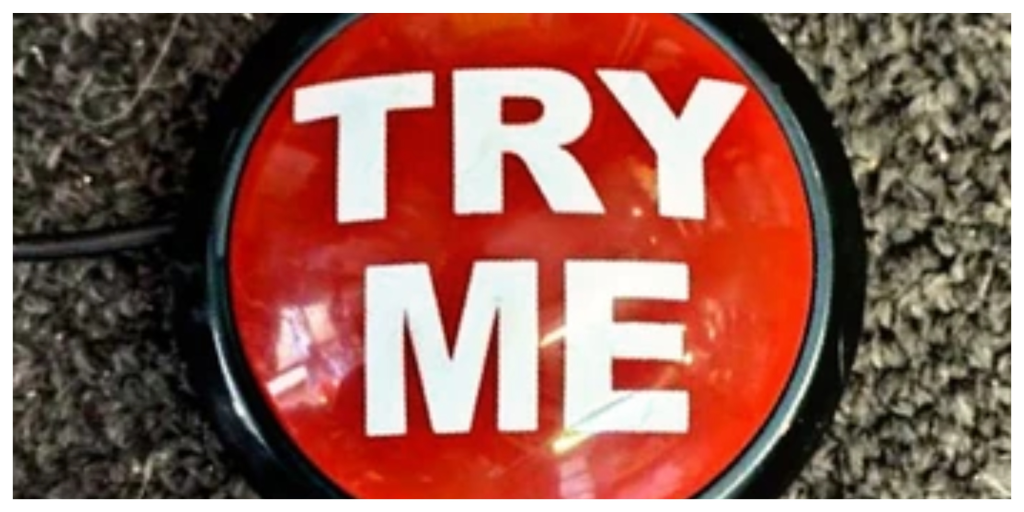
I miss my mom. I used to push all the buttons just as she would walk down the aisle, a mischievous glint in my eye. Each time we visited the grocery store, I’d dash ahead, my small fingers dancing over the colorful buttons of the self-checkout machine. With each beep, she’d turn around, half-laughing, half-exasperated. “You little rascal! One day, you’re going to break it!” she’d say, shaking her head, but her smile would give her away. Those moments were filled with laughter and light, the kind of memories that could brighten even the dullest days.
Since her passing, the grocery store has become a hollow place for me. I walk through, the automatic doors sliding open with a soft whoosh, and I feel the weight of the emptiness settle in my chest. The shelves filled with brightly packaged goods seem to mock my solitude. I can still hear her voice, echoing in my mind, reminding me to pick up my favorite snacks or to try a new recipe. I wander through the aisles, my heart heavy, searching for a piece of her in every corner.
I remember how she would linger by the produce, inspecting the apples with care, always choosing the shiniest ones. “The best things in life are worth taking a moment to choose,” she would say, her hands gently brushing over the fruit. Now, I find myself standing there, staring at the apples, unable to choose. They all seem dull and lifeless without her touch.
The self-checkout machines are still there, their buttons waiting to be pressed, but they feel like a cruel reminder of what I’ve lost. I can’t bring myself to push them anymore. The last time I stood in front of one, the memories flooded back. I could almost hear her laughter, feel her presence beside me. But it was just a memory, fleeting and painful.
Every week, I return to the store, hoping that somehow it will feel different, that I’ll find a way to connect with her again. But the aisles remain unchanged, their fluorescent lights buzzing overhead like a persistent reminder of my loneliness. I see other families laughing and chatting, and I feel like an outsider looking in on a world that no longer includes me.
One evening, as I walked past the cereal aisle, I spotted a box of her favorite brand. It was decorated with bright colors and cheerful characters, a stark contrast to the heaviness in my heart. I hesitated for a moment, then reached out and grabbed it, a sudden rush of nostalgia washing over me. I could almost see her standing beside me, her eyes twinkling with excitement. “Let’s get it! We can make our special breakfast tomorrow!”
With the box cradled in my arms, I made my way to the checkout. I felt a warmth spreading through me, the kind of warmth that comes from cherished memories. But as I stood there, scanning the items and watching the screen flash numbers, I realized that I was alone. The laughter we shared, the spontaneous dance parties in the kitchen, all of it felt like a distant dream.
When I got home, I placed the box on the kitchen counter, a bittersweet smile tugging at my lips. I thought about making pancakes, just like we used to, the kitchen filled with the scent of vanilla and maple syrup. I reached for my phone to call her, to share the news, but my heart sank as reality set in. There would be no more calls, no more laughter echoing through the house.
That night, I sat in the dark, the box of cereal beside me, feeling the weight of my grief settle in. I poured myself a bowl, the sound of the cereal hitting the milk breaking the silence. As I took the first bite, tears streamed down my cheeks. Each crunch reminded me of the moments we had shared, and I felt an ache in my chest for the warmth of her presence.
“I miss you, Mom,” I whispered into the stillness of the room. “I wish I could press all the buttons just one more time, hear you laugh, feel your hand in mine.”
But the buttons would remain untouched, just as the aisles of the grocery store would remain silent, a reflection of the emptiness I felt inside. And in that moment, I realized that while the world continued to move forward, I would always carry her with me, a bittersweet reminder of the love that once filled my life.
All of My Right Shoes Kept Going Missing – When I Finally Found Out Why, It Shook Me to My Core
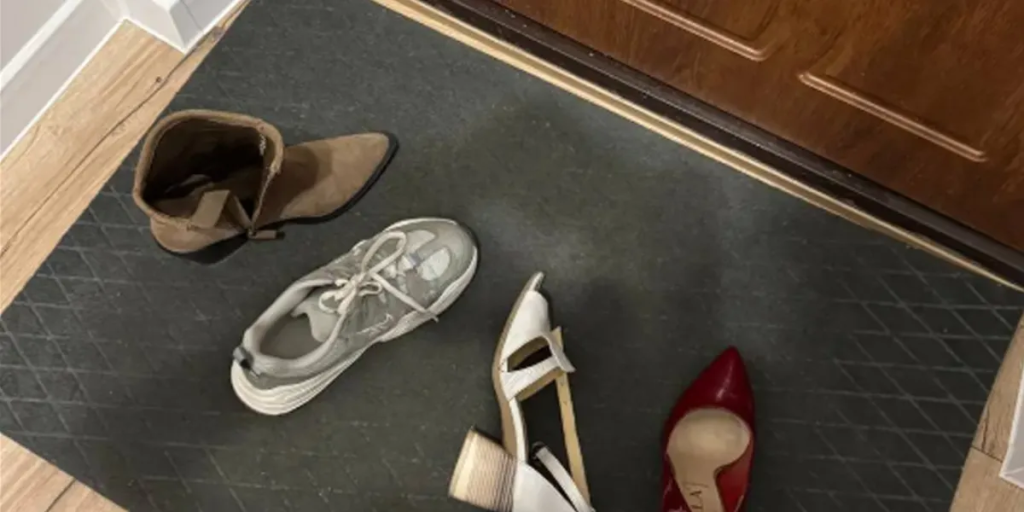
All my right shoes kept disappearing, and I was at my wit’s end trying to figure out why. When I finally uncovered the truth, it was about something far deeper and more heartbreaking than just a missing shoe.
When I married Randy, I never imagined how much my life would change. His house was enormous, bigger than anything I had ever lived in.

A mansion in winter | Source: Pexels
It was the kind of place that felt like a mansion compared to my old apartment. But what made it feel like home wasn’t the size or the fancy furniture. It was Randy and Martha.
Martha was his six-year-old daughter, and she was the sweetest little girl. From the moment I met her, she started calling me “Mom.” Randy had been raising her alone since she was a toddler, and I admired how close they were.
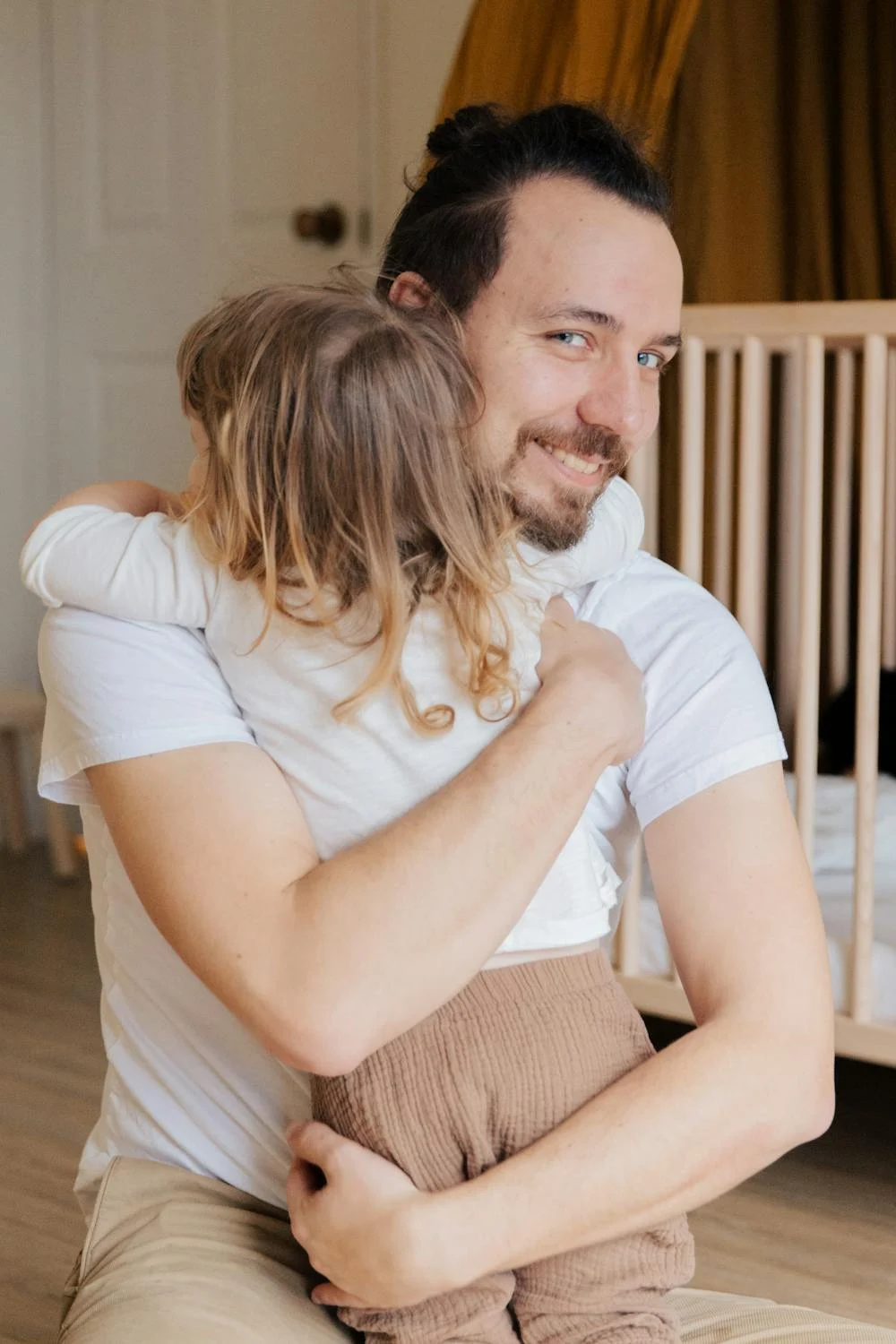
A father hugging his daughter | Source: Pexels
Living with Randy’s family took some getting used to. His mother and sister lived with us, too. His mom, Evelyn, was the no-nonsense type. She was always busy with gardening, cooking, or knitting scarves no one seemed to wear. Randy’s sister, Tammy, was younger, still figuring out life, and spent most of her time on her phone.
At first, everything felt perfect. Everyone seemed happy with the arrangement, and I didn’t mind sharing the space. The house was so big, we could go hours without running into each other. But then, something odd started happening.

A big family dinner | Source: Pexels
One morning, I got up early for my gym session. I was half-asleep when I went to grab my sneakers. I found one, but the other was missing.
“Where’s the right one?” I muttered, searching under the bed. Nothing. I checked the closet, the bathroom, and even the kitchen. Still nothing.

A woman searching for her shoe | Source: Midjourney
I ended up wearing an old pair of flip-flops to the gym that day. I thought I must’ve misplaced the shoe somehow, but it didn’t feel right. I always kept them together by the door.
The next day, it happened again. This time, it was my favorite pair of Birkenstocks. The left one was exactly where it should be, but the right was gone.

One single shoe | Source: Pexels
By the end of the week, it was a pattern. Every time I needed a pair of shoes, the left one was there, but the right one had vanished.
“Randy, have you seen my sneakers?” I asked one morning while he was sipping his coffee.
He looked up from his laptop and shrugged. “Nope. Did you check the closet?”

A smiling man with a laptop | Source: Pexels
“Yes, and under the bed, and everywhere else.” I threw my hands in the air. “It’s like they’re disappearing. First my sneakers, then my Birkenstocks, and now my pumps. It’s ridiculous!”
He laughed. “Maybe the house is haunted.”
I rolled my eyes. “Very funny.”
I decided to ask Evelyn. If anyone had seen my shoes, it would have been her. She was always up early, cleaning or organizing something.

A woman cleaning a window | Source: Pexels
“Evelyn, have you seen my shoes? The right ones keep disappearing.”
She looked up from her knitting. “Your shoes? No, I haven’t seen them. Are you sure you didn’t leave them somewhere?”
“Absolutely not.”
She shook her head. “Maybe it’s Martha? Kids are sneaky.”
Martha? The thought hadn’t crossed my mind. She was always playing around, but I couldn’t imagine her hiding my shoes.

A puzzled woman talking to her mother-in-law | Source: Midjourney
“Martha,” I said that evening as I tucked her into bed, “have you been playing with my shoes?”
She looked up at me with big, innocent eyes. “No, Mom. I didn’t touch them.”
“Are you sure?”
She nodded. “I promise.”
Her answer seemed genuine, so I let it go. But the next morning, when another right shoe disappeared, I knew something wasn’t right.

An awkward suspicious woman | Source: Freepik
One afternoon, while searching for an old film camera in the pantry, I stumbled on something odd. Behind a stack of boxes was a dusty suitcase, half-open.
“What’s this?” I said to myself, pulling it out.
When I opened it, my heart dropped. Inside were all my missing shoes, neatly stacked.
“What in the world…” I whispered, staring at the bizarre collection.

A suitcase filled with single shoes | Source: Midjourney
My confusion turned to suspicion. The suitcase wasn’t mine, but I recognized it. It belonged to Evelyn.
I carried it to the living room, my chest tight with frustration and disbelief. Evelyn was sitting in her usual chair, sipping tea.
“Evelyn,” I said, holding up the suitcase, “can you explain this?”
Her brow furrowed. “Explain what?”

A surprised middle-aged woman | Source: Pexels
I opened the suitcase, showing her the shoes. “These. Why are my shoes in your suitcase?”
She stared at the shoes, then back at me, her face a mixture of confusion and defensiveness. “I have no idea. I’ve never seen them before.”
“How could you not know? It’s your suitcase!”
Evelyn set her tea down and crossed her arms. “I’m telling you the truth. I didn’t do this.”

A woman arguing with her mother-in-law | Source: Midjourney
Her tone was firm, but I didn’t know what to believe.
Frustrated and exhausted, I knew there was no more guessing. I needed answers. That evening, I called everyone into the living room. The suitcase of shoes sat in the center of the coffee table like a piece of evidence at a crime scene.
Randy arrived first, looking confused. “What’s this about?” he asked, gesturing to the suitcase.

A puzzled confused man | Source: Freepik
“I found my missing shoes,” I said firmly. “And I want to know who’s responsible.”
Evelyn walked in next, her expression already defensive. Tammy followed with earbuds in, scrolling on her phone. Martha trailed behind them, clutching her stuffed bunny.
I cleared my throat, trying to steady my voice. “I’ve been losing my right shoes for weeks. This morning, I found all of them hidden in Evelyn’s suitcase in the pantry.”

A woman talking in the living room | Source: Midjourney
Evelyn threw her hands up. “And I already told you, I don’t know how they got there! I don’t even go in the pantry except to grab flour.”
“Then who?” I asked, scanning the room. My voice wavered slightly, and I hated how desperate I sounded. “Someone in this house has been messing with me, and I need to know why.”

A puzzled woman in the living room | Source: Midjourney
Randy stepped forward, his brow furrowed. “Let’s not jump to conclusions,” he said, his tone calm but firm. “We’ll figure this out.”
Tammy looked up from her phone, finally catching on. “Wait, are you accusing us of stealing your shoes? That’s crazy.”
“I’m not accusing anyone,” I shot back. “I just need the truth.”

A young woman on her phone | Source: Pexels
The room went silent. The weight of the unspoken filled the air. Then, just as I was about to speak again, a small voice broke through the tension.
“It was me.”
I turned toward Martha, stunned. She stood near the doorway, tears streaming down her face, clutching her stuffed bunny tighter.
“What?” I whispered.
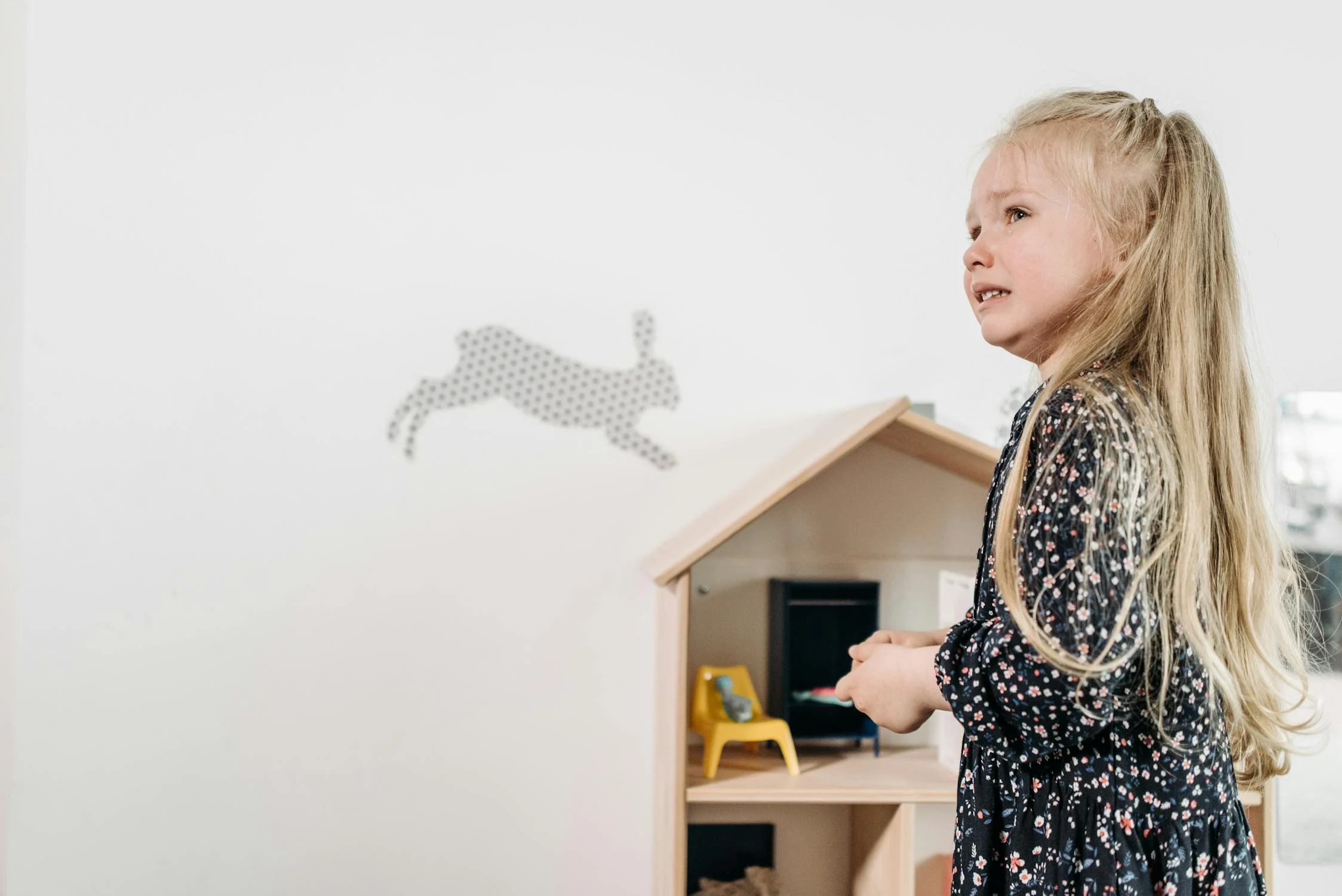
A crying girl near her dollhouse | Source: Pexels
“I’m sorry,” she said, her voice trembling. “I took them. I didn’t mean to make you upset. Please don’t be mad.”
I blinked, trying to process her words. “You… took my shoes? Why, Martha?”
She looked down at the floor, twisting the bunny’s ear in her tiny hands. “I thought… if you didn’t have shoes, you couldn’t leave. You’d have to stay with me.”
Her words hit me like a punch to the gut.

A shocked woman | Source: Pexels
“Oh, honey…” Randy knelt beside her, his voice soft and gentle. “Why would you think she’d leave?”
Martha looked up at him, her face crumpling with fresh tears. “Because Mommy left. She didn’t say goodbye. She just… went away.”
The room grew still. Randy’s face was pale, his eyes glistening. Evelyn wiped at her own eyes with a tissue.
Martha turned to me, her little voice breaking. “I don’t want you to leave, too.”

An upset little girl | Source: Midjourney
I dropped to my knees in front of her, my chest aching. “Sweetheart,” I whispered, pulling her into my arms. “I’m not going anywhere. I promise you.”
She buried her face in my shoulder, sobbing quietly.
For a long moment, no one spoke. The weight of Martha’s pain hung heavy in the air.

Shocked people | Source: Freepik
“I’m so sorry, Martha,” I murmured. “I didn’t know you were feeling this way. But you don’t have to be scared. I love you, and I’m staying right here.”
Tammy cleared her throat. “Jeez, Martha, you could’ve just said something.”
Evelyn gave her a sharp look. “Tammy!”
“What?” Tammy muttered, looking embarrassed.

A woman looking away from her phone | Source: Midjourney
Randy stood and placed a hand on my shoulder. “Thank you,” he said softly, his voice filled with emotion.
Martha pulled back, her tears slowing. “You’re not mad?” she asked, her voice small.
“Not at all,” I said, wiping her cheeks. “I’m just glad you told me. You don’t have to hide anything from me, okay?”
She nodded, sniffling.
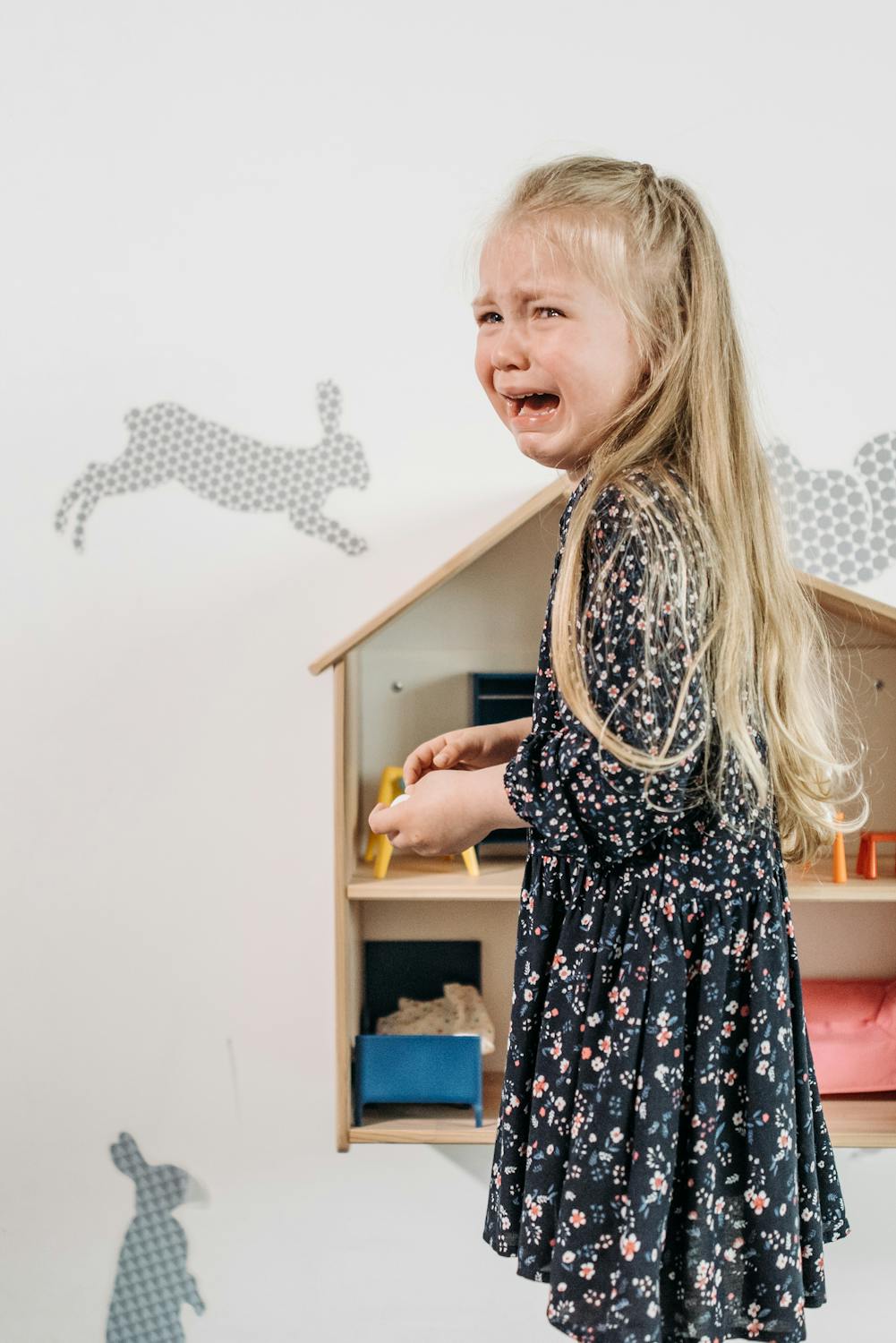
A crying girl looking to her side | Source: Pexels
As I tucked her into bed that night, I held her hand and promised her again: “I’m here, Martha. And I’m not going anywhere.”
Her small fingers gripped mine tightly. “I love you, Mom.”
“I love you, too.”

A girl sleeping | Source: Pexels
As the house settled into its usual quiet, I sat on the edge of my bed, holding one of my reunited shoes. I turned it over in my hands, still amazed at how something so small had uncovered something so big.
I thought back to all the times I’d been frustrated, searching for shoes and feeling confused. In hindsight, it seemed so trivial. But for Martha, it had been her way of trying to protect herself from losing someone she loved.

A smiling woman in her bedroom | Source: Midjourney
The lesson wasn’t lost on me. Love requires patience and understanding, especially in a blended family. It’s about paying attention to what isn’t said and listening with more than your ears.


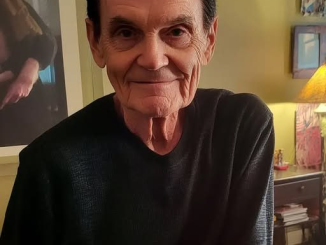
Leave a Reply